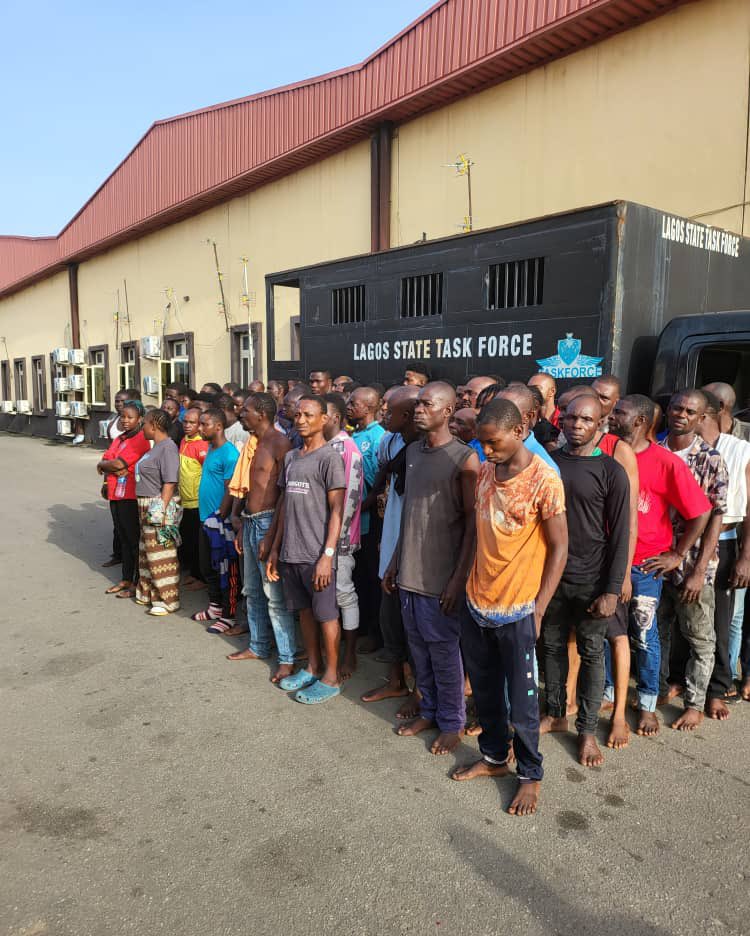1.9K
Daniel Adaji
The Lagos State Government has arrested and plans to charge 74 homeless people to court following a midnight raid carried out by the Lagos State Environmental Taskforce.
The operation, which began around 1 a.m. on Tuesday, targeted several key areas within the Lagos Island-Lekki axis, including Falomo Bridge, Eko Hotel Roundabout, Oniru Beach, the Nigerian Law School area, Lekki Phases 1 and 2, and the 1004 Estate area.
Lagos State Commissioner for the Environment and Water Resources, Tokunbo Wahab disclosed this on his official X handle on Tuesday.
“Earlier today at about 1 a.m., the Lagos State Environmental Taskforce team embarked on its usual clean-up enforcement operation around the Lekki axis in Lagos Island. A total number of 74 individuals were arrested—72 male and 2 female—and sanity was restored in all the areas. All the suspects will be charged to court accordingly,” he said.
The action has triggered widespread backlash, especially on social media, where users questioned the morality of criminalizing homelessness amid Nigeria’s persistent housing crisis and economic hardship.
“I don’t support this. This is so pathetic, arresting people for being homeless instead of helping?” wrote Facebook user Ikechukwu Oge. “These people barely feed talk more of feeding, the only solution here is just to provide them a shelter.”
Christian Chrisgold commented, “You want to charge a person to court for being homeless? What a nonsense government. Very disgusting attitude. This is the reason why insecurity will never stop in Nigeria.”
Akah Donatus added sarcastically, “And a Lagosian told me yesterday that Donald J Trump is getting it wrong in America. Can he say the same about this development?”
Though some defended the operation, citing concerns about criminal activity, others warned it may push vulnerable individuals further into desperation. On X (formerly Twitter), @lollylarry1 said, “In as much as I have sympathy for some of them, the criminals amongst them make it very hard to make a case for them.”
The enforcement comes against the backdrop of a deepening housing crisis in Nigeria. The country faces a staggering housing deficit estimated at over 28 million units, according to the Federal Mortgage Bank of Nigeria. Lagos, Nigeria’s most populous city, shoulders a significant portion of this burden, with soaring rents and limited access to affordable housing.
The situation is compounded by rising poverty. The National Bureau of Statistics (NBS) reports that over 63 per cent of Nigerians are multi-dimensionally poor, lacking access to health care, education, and basic living standards. With inflation and unemployment still high, many Nigerians live on the edge of survival.
Stakeholders have long argued that criminalizing homelessness without addressing root causes such as poverty, joblessness, and lack of housing is a misstep. As one Facebook commenter put it, “Are you all that blindfolded to see the economic scramble?”
Despite the government’s justification for the operation, questions persist about how much protection Lagos offers to its most vulnerable residents—and whether justice is truly served by putting the homeless on trial.



